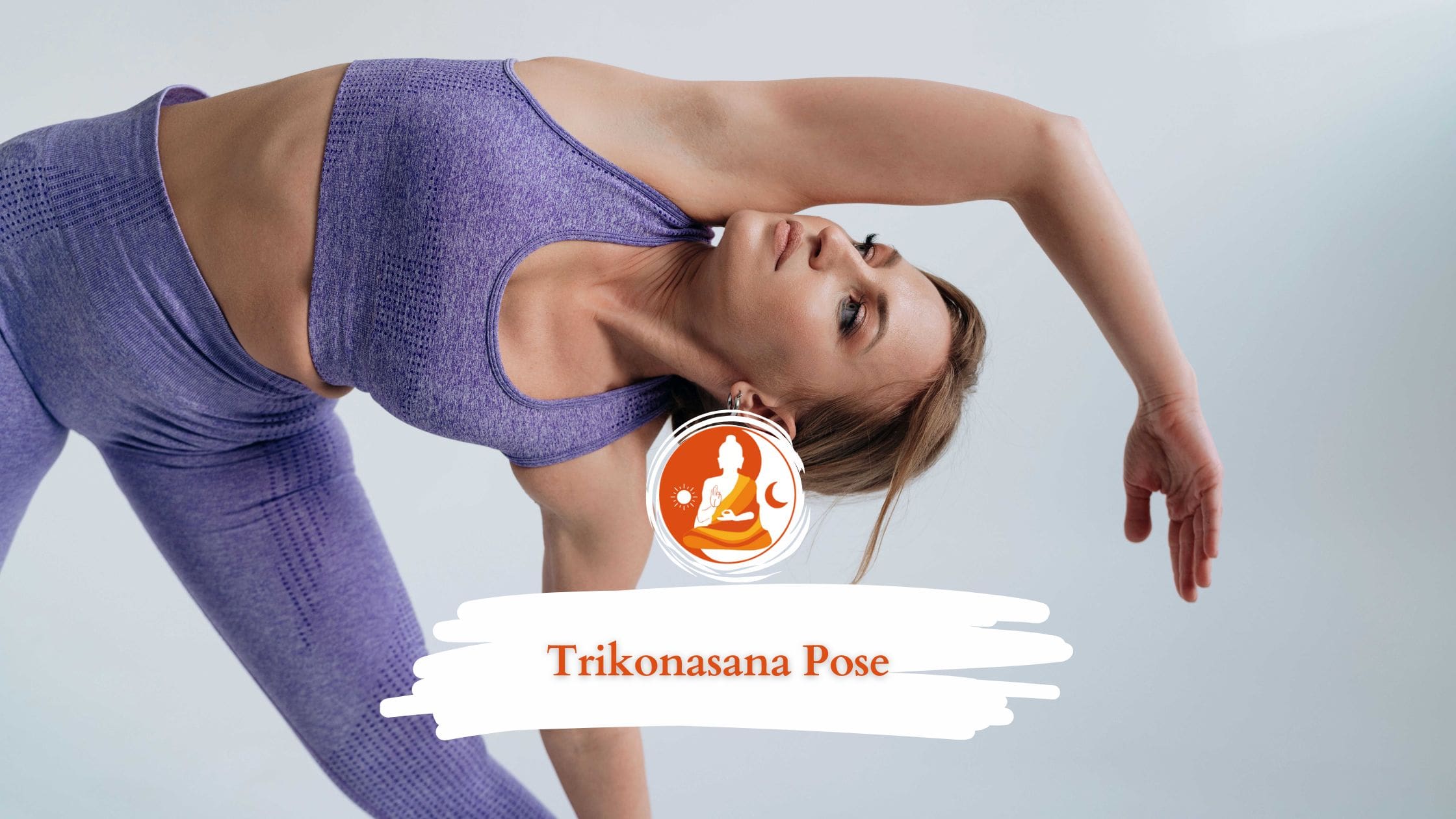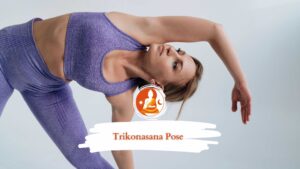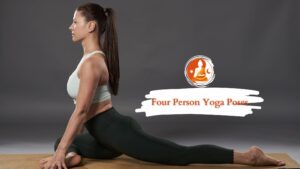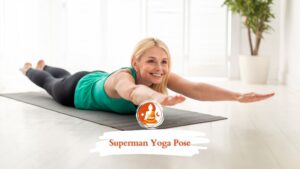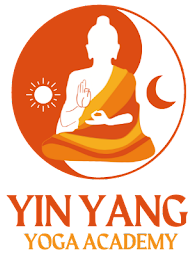The trikonasana pose is a basic yoga asana practiced for its many benefits to both physical and mental health. This standing posture helps one balance better, strengthens muscles, and provides flexibility, making it an integral part of any yoga routine. Derived from the Sanskrit words “Trikona,” meaning triangle, and “Asana,” meaning pose,
Trikonasana is essentially the shape the body assumes while in the posture. It can be practiced by all levels of yoga practitioners and is very helpful in stretching the legs, hips, spine, and chest along with improving core stability. The abdominal organs are stimulated, aiding digestion and stress relief. If proper alignment and breathing techniques are maintained, practitioners can maximize the benefits of this pose and deepen their yoga practice.
It’s beautiful because of its versatility and adaptability, making it perfect for beginners to practice. A beginner can make the pose flexible according to their flexibility and experience. Regular practice of this pose will improve one’s posture, concentration, and mind-body awareness.
In this comprehensive guide, we will discuss the benefits, variations, step-by-step instructions, and essential tips for mastering this pose. Moreover, we will highlight common issues that may arise along with the substitutions and frequently asked questions to aid you in comprehending this phenomenal yoga pose further.
Related Post: Best Asana for Meditation
Table of Contents
ToggleHow to Practice Trikonasana Pose?
Let us now explore trikonasana variations and unlock all its transformative secrets. Here are the step-by-step Instructions to follow:
- Stand in Tadasana, Mountain Pose at the top of your mat.
- Step your feet and it should be around 3 to 4 feet apart.
- Turn your right foot out at a 90-degree angle, and slightly tuck your left foot in.
- Raise your arms parallel to the floor, at shoulder height.
- Inhale fully and bend your torso over to the right side, keeping your right hand towards your shin, ankle, or floor.
- Reach your left arm up toward the ceiling, leveling your shoulders.
- Keep your gaze on your left hand or look forward, depending on your comfort level.
- Hold the pose for 30 seconds to 1 minute while maintaining steady breathing.
- Inhale and return to the starting position.
- Repeat on the left side.
Trikonasana Benefits
Practicing the Trikonasana pose regularly offers a variety of benefits:
- Enhances flexibility in the legs, hips, and spine.
- Strengthens the legs, ankles, and core muscles.
- Improves posture and spinal alignment.
- Stimulates digestion and metabolism.
- Reduces stress and promotes mental relaxation.
- Improves blood circulation and oxygen flow.
Triangle Pose Variations
There are variations, such as the extended trikon asana Pose and revolved triangle pose, which have different benefits. Whether you are a beginner or an experienced yogi, knowing these variations can help you customize your practice according to your needs and goals.
1. Utthita Trikonasana
This variation is a more intense stretch. It focuses on the expansion of the chest, and opening of the shoulders, and can improve stability as well as the flexibility of the hamstrings and hips.
2. Parivrtta Trikonasana
This variation is known as the revolved trikon asana pose. It requires twisting the torso and extending the arms. The spinal mobility increases, balance improves, and the oblique muscles are strengthened.
3. Supported Triangle Pose
A yoga block can be used to support the lower hand, thus reducing the strain and proper alignment.
Also Read: Four Person Yoga Poses
Practice Tips for Safe Trikonasana Pose
This asana in a holistic yoga practice can help cure common discomforts such as back pain, stiffness, and poor circulation.
- Preheat before practicing the pose in order to avoid injuries.
- Always keep your spine elongated. Avoid slouching.
- Engage your core in order to be more stable and in balance.
- Don’t lock your knees; keep them slightly soft to not overwork them.
- If it hurts, you can modify the pose to use a prop.
- Some Common Mistakes and How to Avoid Them
- Chest collapse: Keep your chest open, keep your shoulders from rounding forward.
- Hyperextension of the front knee: Keep a micro bend in the knee in order to not hyperextend.
- Forcing the Stretch: Never stretch your body. Gradually stretch your body.
Also Read: Trauma Yoga Certification
Final Thoughts
Trikon asana is an advanced yoga posture that has immense benefits for one’s physical as well as mental health. With standard trikona-asana, Extended Triangle Pose, or revolved trikonasana pose, including these variations can increase flexibility, strength, and balance.
Besides physical triangle pose benefits, this pose tends to cultivate a mind in a state of awareness, thus teaching more body consciousness and peace from within. Regular practice combined with proper alignment can prevent injuries and maximize the good done by this pose. Whether you want better posture, increased flexibility, or stress relief, it is sure to be an asset to your yoga practice.
Start practicing Trikon asana today and start enjoying its profound impacts on the mind and body. Begin your journey to yoga with this great pose and start to feel its holistic effects.
Popular Questions
Those people with severe back pain, knee injuries, or high blood pressure must consult a doctor before performing this pose.
Yes, beginners can practice this pose by using props in the alignment.
For maximum benefit hold it on either side for 30 seconds to 1 minute
The best time is in the morning though it can also be done in the evening time when the stomach is empty.
Yes, when performed with proper alignment, this pose can help relieve mild back pain and improve posture.
Practicing the extended triangle stretch 3-5 times a week can help improve flexibility, strength, and balance effectively.

